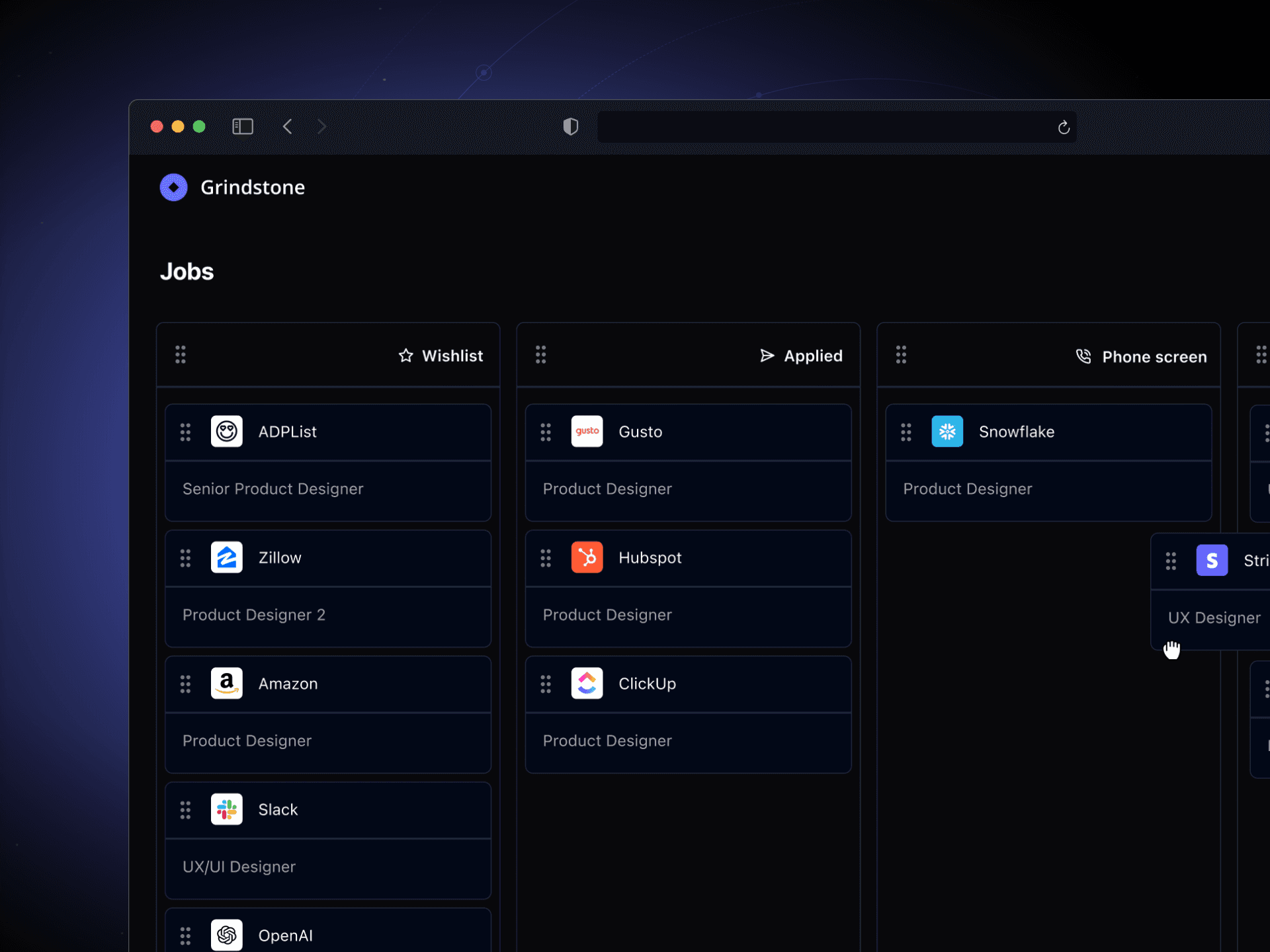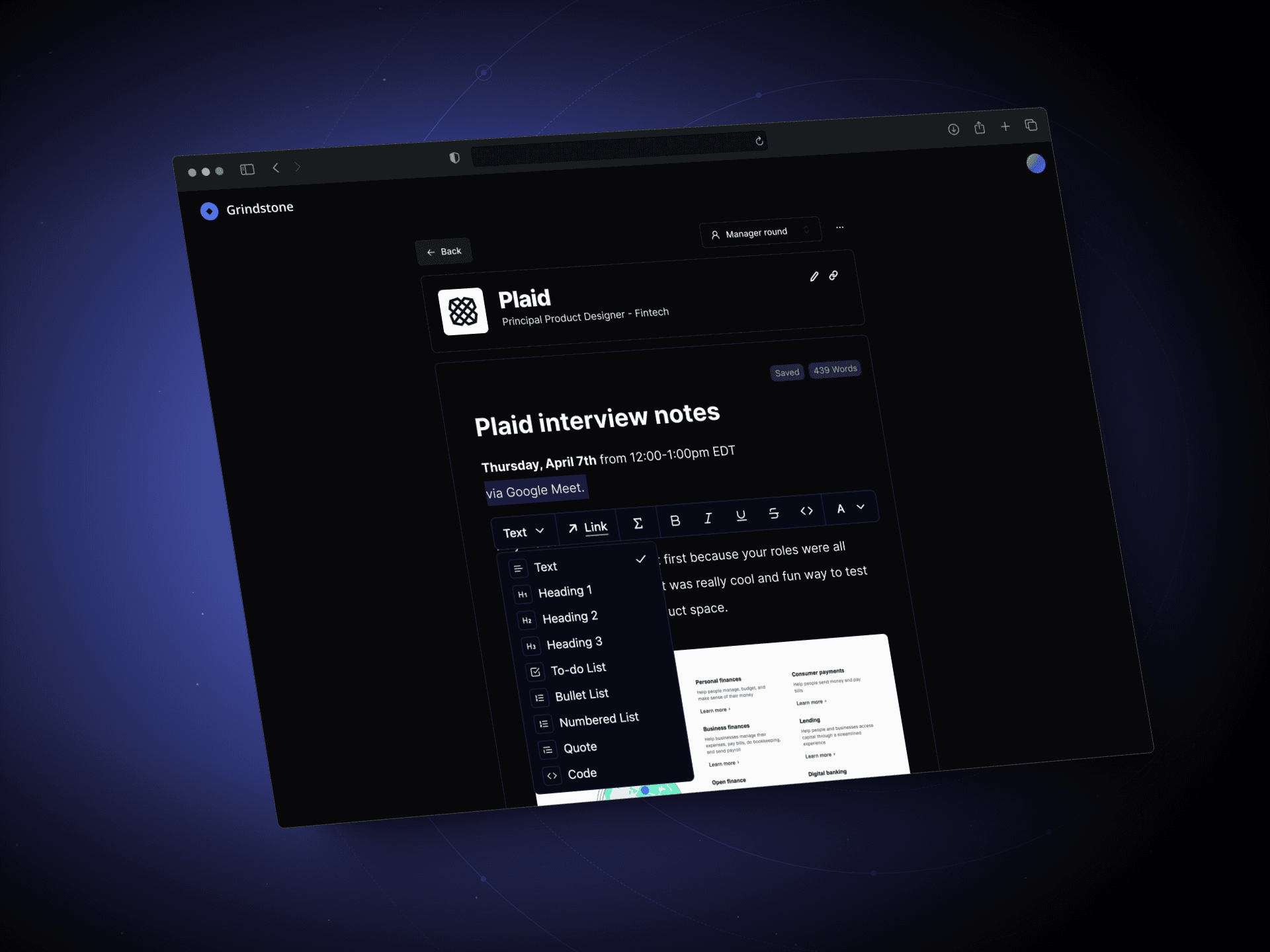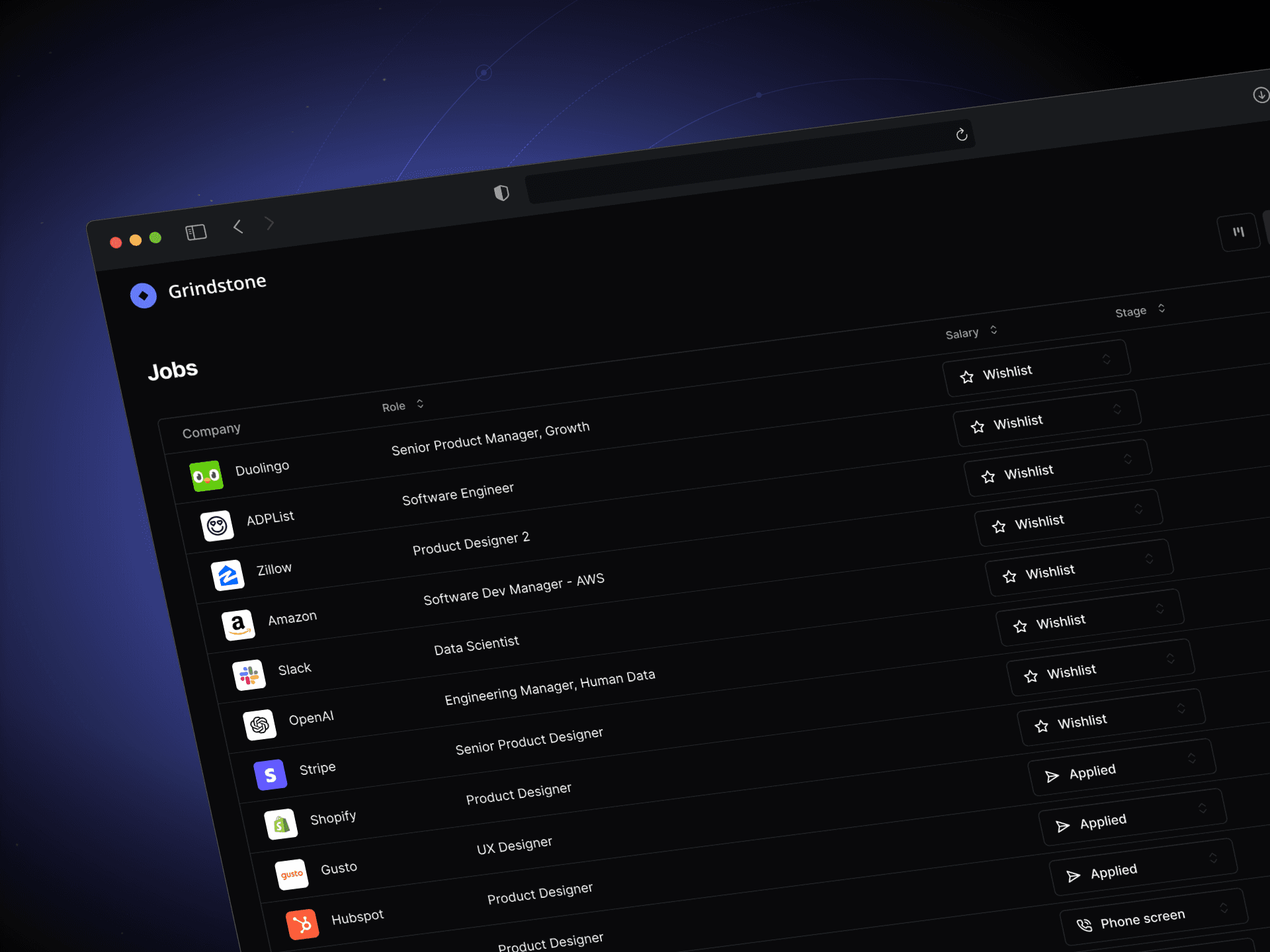Perspectives on the market:
The average tech worker changes jobs often. And loses their job often. (the average tenure at Google is 1.6 years) That means constantly having to be on the lookout for your next gig.
And the interview process is more lengthly and complicated than ever. Often 4-5 rounds of interviews all requiring differing preparation. Code challenges, personality questions, whiteboarding, multiple interview’s juggled at the same time to get a competitive offer. It’s a lot to keep track of.
Today, some applicants don’t track their applications formally. The ones who do, often just use a simple excel spreadsheet. Which is fine at small scale, but active job seekers often apply to hundreds of listings and take 25-50 interviews before getting an offer. (admittedly it’s a wide range here)
Alternatives?
Excel / Notion / Pen paper / Homebrew trackers:
People often ask "Why not just use excel?" How is this any better? The short answer is, you can! Using excel and pen and paper is totally do-able if you're in high-demand and don't have to do that many interviews. The reason you might use a dedicated tracker is scale. Your average tech worker will apply to 50-200 roles before landing a single offer. Personally, with 7 years in the industry, my last job search took 8 months and about 150 applications. At that level, keeping track of everything starts to get difficult.
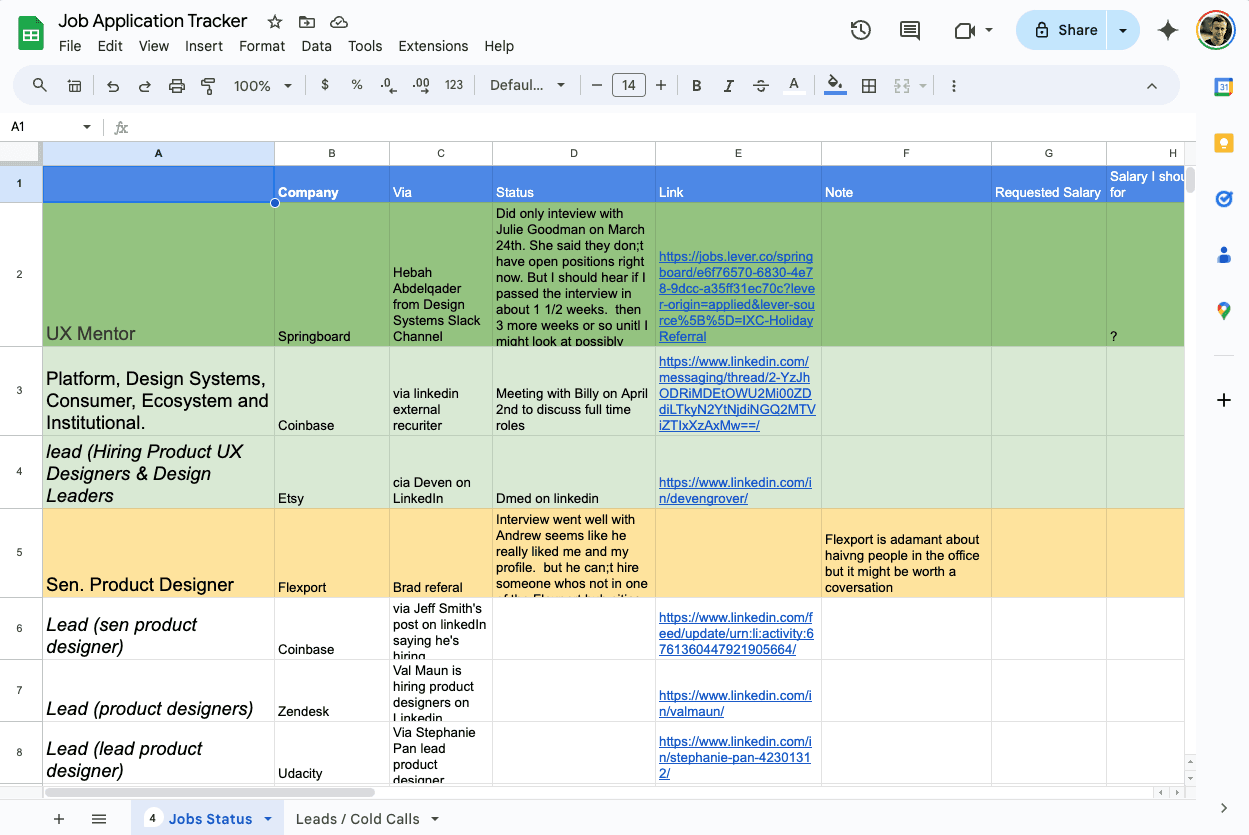
Huntr
Huntr is a dedicated job tracker that has features that focus on aspects like AI resume tailoring and a plugin for bookmarking roles. Much of Huntr's features focus on resume tailoring which makes it the best fit for candidates who are doing a lot of cold applications. IE. if your strategy is the "shotgun" approach ( not getting referals) and are hitting Easy-Apply this might be the way to go. The challenge with applying this way is it just requires you to do a ton of applications and modifying your resume in the hopes that you beat everyone else.
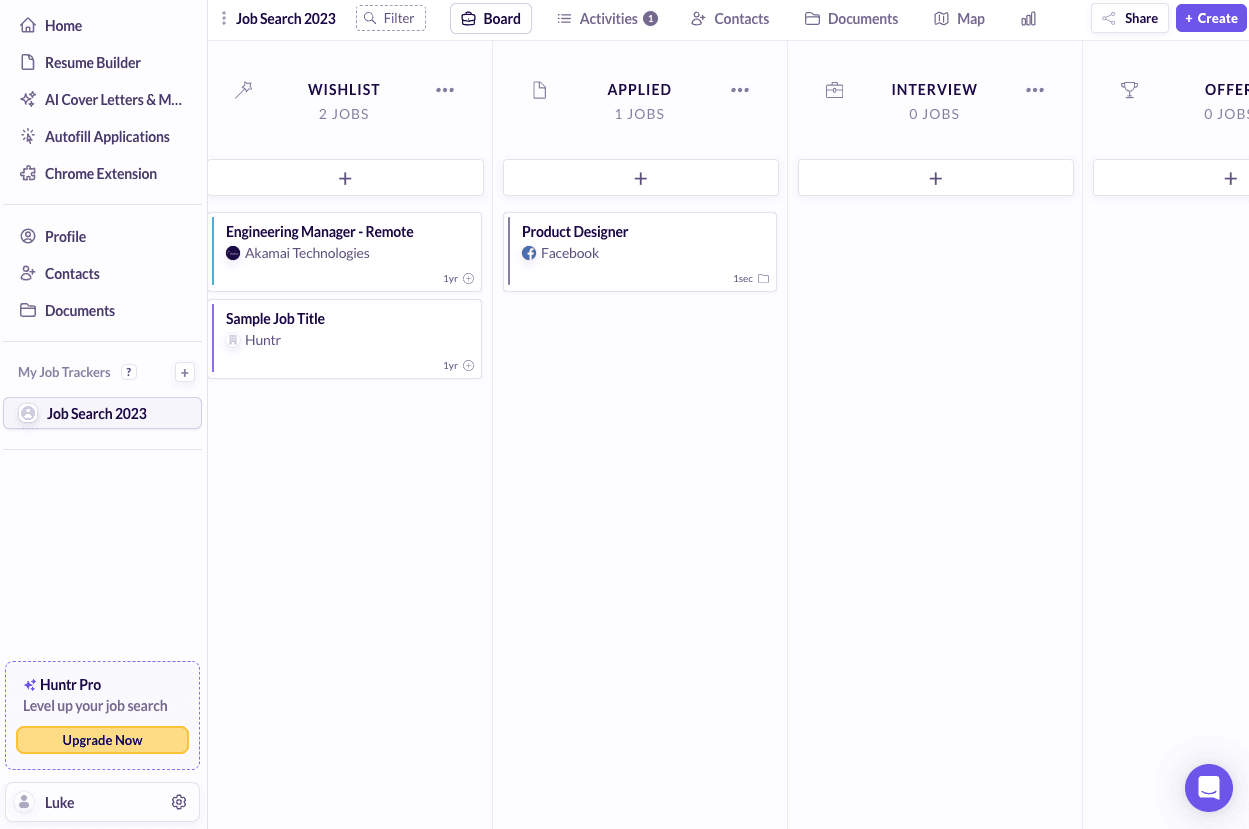
Canyon
Canyon emphasizes its AI-powered resume builder, cover letter generator, and mock interview tool. Like Huntr, it’s well-suited for those relying on cold applications and looking to tailor their materials to each job. Canyon’s focus on interview practice could also be valuable for those struggling with interview performance in later stages.
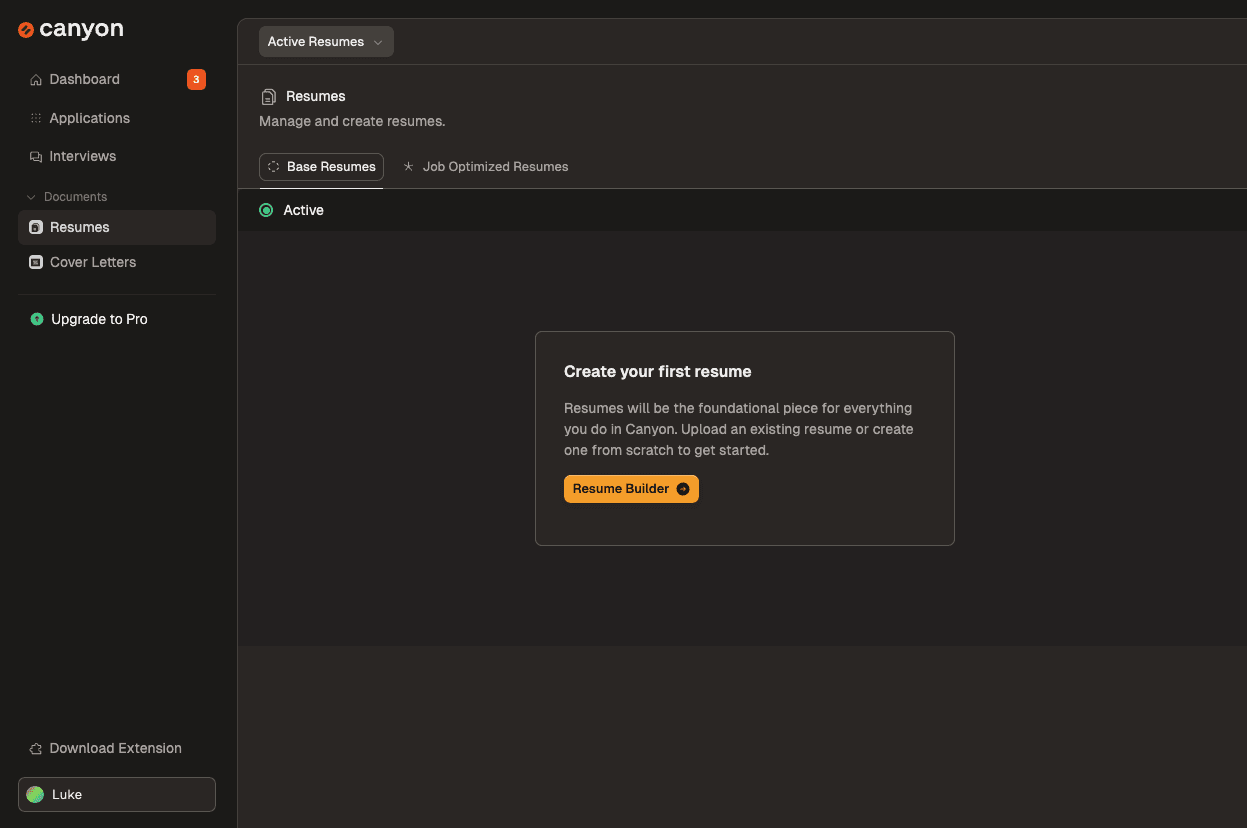
Simplify
Take a more of a two sided market place type lens. They have a traditional tracking, resume AI…. but also a internal job board that they maintain. It too, encourage cold applications throwing you hat in the ring with 1000's of other applicants. (so it'd be good for folks who are mass applying with the shotgun approach.
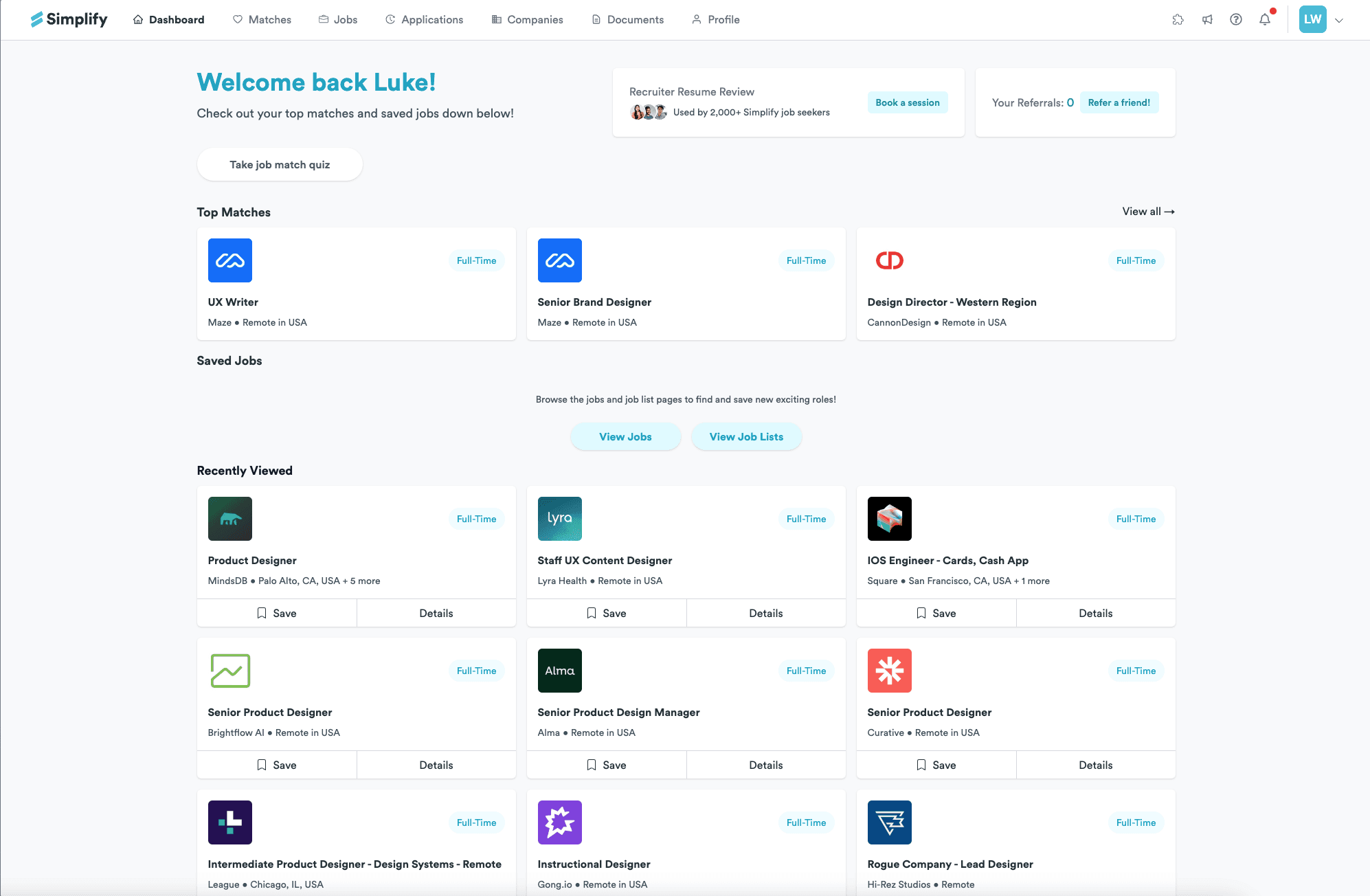
What Grindstone does differently:
Tracking your job search matters because it give you an edge in the interview process over other candidates.
There are pros and cons to all these different approaches.
Our focus is on helping job seekers like you record structured notes, important details, and even code snippets within Grindstone, so you can give better answers in interviews and ultimately get more offers.
We purposely don't go after resume and cover letter generators because we think it encourages cold-applying roles. Roles where you're 1 of 1000. Roles where most of the time you never hear back. And that whole customization is just a big time-sink. Our goals for the future, are to ship features that connect you with other people in your network to get referred directly. So you can skip all the resume and ATS shenanigans entirely.
So, If you find yourself struggling to answer behavioral questions or managing countless notes and documents, Grindstone might be right for you. Whether you’re a recent graduate, a seasoned professional, or someone who just needs a little more structure in their search, we're here to help.
